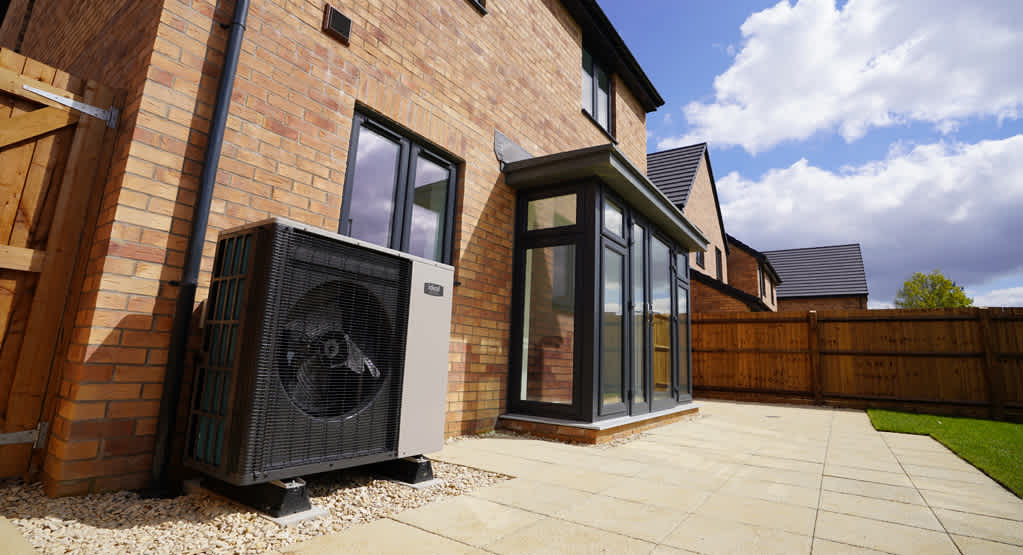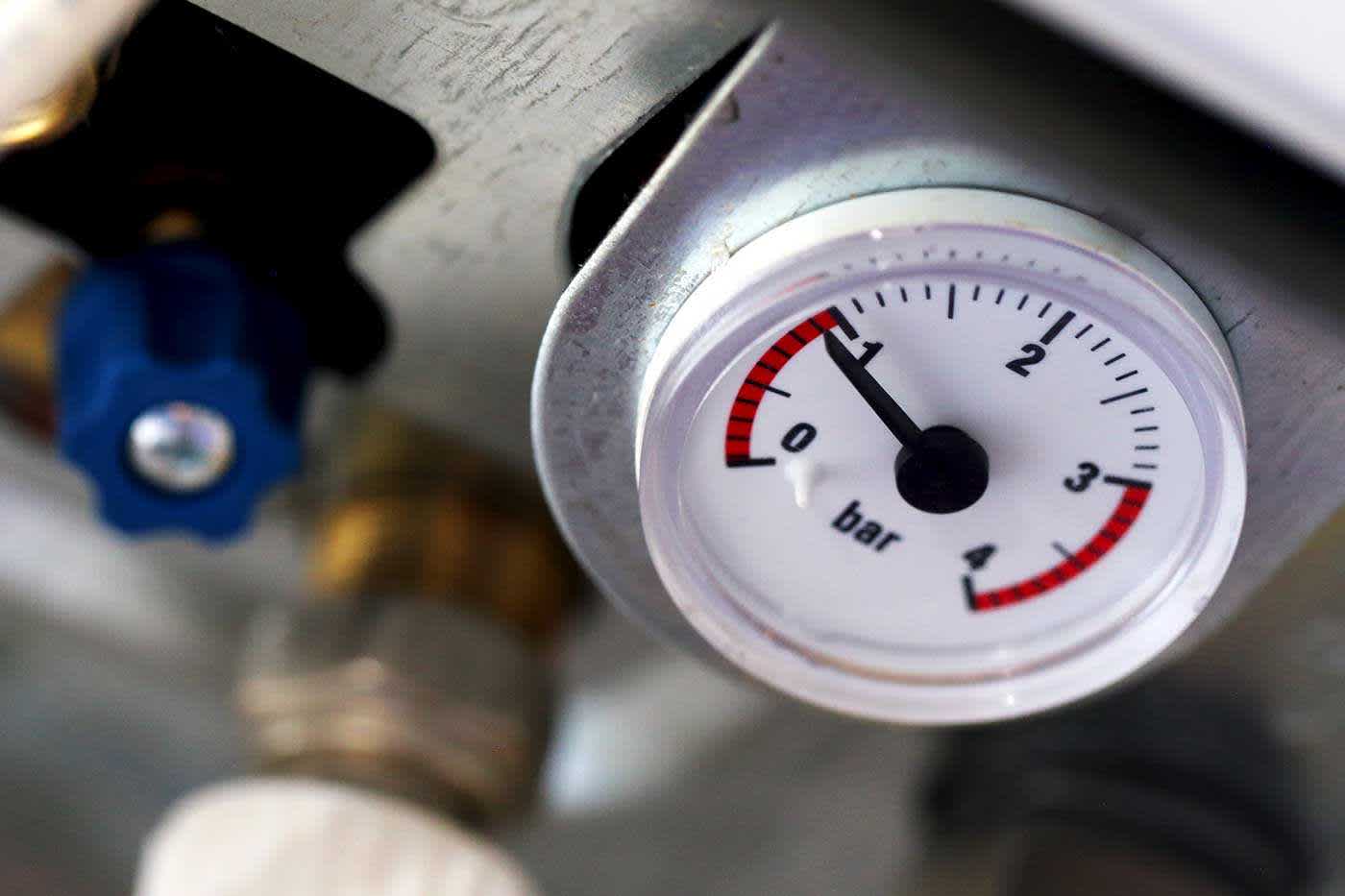
Different types of heat pumps: An expert guide
If you're considering a heat pump for your home, you're likely wondering which type is best. To help you decide, we'll explore all of the different kinds of heat pumps available, including air, water, ground-source, monobloc, and split heat pumps, so that you can make the most informed choice possible.
In this guide, you'll discover the benefits and disadvantages of each heat pump type, as well as costs, efficiency levels and which type of home each kind is best suited to.
Air-source heat pump
Air source heat pumps are compatible with the widest range of homes, requiring only access to the outside air, as opposed to large quantities of ground or a nearby body of water like other heat pump types.
How does an air source heat pump work?
Heat pumps extract energy from the air using substances called refrigerants that have very low boiling points.
As air passes through the heat pump, energy is transferred to the refrigerant, causing it to boil and become gas. It’s then compressed to increase the energy and temperature even more, and this energy is then transferred to the water that will flow around the heating system, while the refrigerant cools enough to return to a liquid form for the cycle to begin again.
They are usually over 300% efficient, meaning that their heat energy output is three times the electrical energy input, significantly cutting back on your carbon emissions. Some air-source heat pumps have even greater efficiency, though. Our Logic Air heat pump is capable of over 500% efficiency under lab-tested conditions.
In real-life scenarios, efficiency levels do not reach this height but usually remain above 300%, ensuring they are still more efficient than gas boilers.
See our guide comparing heat pumps to gas boilers as well as our guide explaining how heat pumps work in winter and cold weather, to understand more.
According to the Energy Saving Trust, the average air-source heat pump costs £14,000. However, by accessing the Government's Boiler Upgrade System, you can reduce this by £7,500. See our guide explaining heat pump costs for more information.
Ground-source heat pump
Ground-source heat pumps are less common than air-source heat pumps. They are 350% efficient on average but have a hefty cost of around £28,000, although this can be somewhat mitigated by the £7,500 Government boiler upgrade scheme.
How does a ground-source heat pump work?
Ground-source heat pumps use pipes to draw heat from the ground outside of your home, making them more consistently efficient through the seasons than their air-source counterparts. However, the installation process needed for this is extremely invasive.
The average 3-bed home would need 400 square metres of ground for horizontally laid pipes or boreholes reaching 80-160 metres downward for a vertical system, which makes them unsuitable for many properties.
Water-source heat pump
This type of heat pump is one of the most efficient, reaching up to 600% efficiency due to the fact that heat transfers more easily through water. Water-source heat pumps cost £10,000 on average and are eligible for the same Government grant as their air and ground-source counterparts.
How do water-source heat pumps work?
Water-source heat pumps absorb heat from nearby bodies of water such as lakes, rivers, streams, mine water, aquifers or the sea. This results in very consistent efficiency levels or SCOP (Seasonal Coefficiency of Performance) as water temperatures are generally stable throughout the year in the UK. However, it does require the home to be near a body of water, meaning that this is not a feasible heat pump choice for many homeowners.
What type of home is each heat pump best suited to?
Air-source heat pumps are suitable for the widest range of homes, not needing extensive outdoor space or proximity to a suitable body of water. For a more detailed assessment of your home’s suitability for heat pumps, see our guide, 'Should I install a heat pump in my home?'.
Monobloc heat pumps vs split heat pumps
There are several types of air-source heat pumps, most significantly monobloc and split.
Monobloc heat pumps
A monobloc air source heat pump consists of a single unit outside your home where the compressor, heat exchanger and other components are stored.
They’re also easier than their split counterparts, as your engineer doesn’t have to be F-Gas qualified to fit it. This is because the F-Gas is contained in a sealed unit, meaning you have a wider range of engineers able to install your monobloc heat pump.
Our Logic Air heat pump is perfect if you decide that monobloc is the air source heat pump type for you.
Split heat pumps
A split heat pump has both an indoor and outdoor unit, with the refrigerant split between the inside and outside of your home. The outdoor unit collects the heat from the air and the heated gas is sent to the indoor unit to heat your water. Due to the pipework needed to connect the refrigerant loop, split heat pumps are more complicated to install than monobloc versions and are, therefore, more initially expensive.
However, split heat pumps do have a number of benefits. The smaller outdoor unit means that you don’t need to worry as much about having adequate outdoor space, although you will need sufficient indoor space for a hot water cylinder and an indoor unit. The outdoor unit can also be further away from your property, giving you flexibility with your heat pump placement. Both our Alfea Excellia and Alfea Extensa are split pumps.
Other heat pump types
Hybrid heat pumps - This type is used alongside another heat source, such as a boiler or a different heat pump. The most common type is a Combi hybrid, which uses a gas Combi boiler with a heat pump. This means you don’t need a hot water cylinder for your heat pump as your Combi boiler handles your hot water while your heat pump handles the majority of your indoor heating. The Combi boiler can also give your heat pump an additional boost in heating your home on particularly cold days.
Mini-split heat pumps - These are smaller-scale heat pumps that are wall-mounted and used to heat or air condition a single room. They are air-to-air heat pumps that work by transferring heat from the outside air directly into the inside air of your home, like an air conditioner unit.
If you’ve decided a heat pump is the heating solution for you, see our guide to selecting, installing, and setting up a heat pump to get you started and our guide to heat pump servicing to keep it running smoothly.
Choose one of Ideal Heating’s heat pumps today for a toasty and efficient home, or see our blog to learn more about our heating solutions.

















